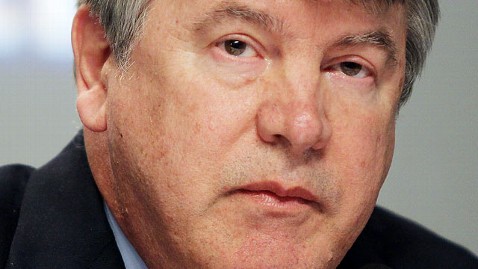Meet John Wolfe, Candidate Posing a Challenge to Obama in Arkansas

(Image Credit: Cheryl Senter/AP Photo)
Mitt Romney is expected to pick up at least a large portion of the 36 delegates at stake in Arkansas' presidential primary today, bringing him ever closer to the 1,144 delegates he'll need to win the GOP nomination. But a more compelling story is the Democratic Primary, where a little-known challenger named John Wolfe Jr. is likely to put up a good showing against President Obama.
Obama's approval ratings in Arkansas have suffered, and the state does not register on the electoral college map as anything resembling a swing state. A Democrat has not carried the state since 1996, when the state's former governor, then-President Bill Clinton, won re-election. Nevertheless, the possibility of a close intra-party primary contest with a relatively unknown candidate peaks interest, and begs the question, "Who is John Wolfe?"
A lawyer from Tennessee, the perennial political candidate is a former Obama supporter who has been dissatisfied with Obama's first term in office. "I think the president campaigned one way and then he governed another," Wolfe said.
Wolfe says he has been disappointed with Obama's handling of the financial sector, saying that the president "institutionalized failure" in his hiring of former finance hotshots.
"What he did was he brought in people who caused the crisis and made them his closest advisers: Rahm Emanuel, Bill Daley, Jack Lew. He basically institutionalized failure," Wolfe said.
But beyond the policy differences, Wolfe has a larger objection: the rhetoric of this administration, and the political realm in general.
"We're hurting ourselves with all of this labeling of things," he said. "We say, 'This is a Marxist idea, this is a right-wing idea.' We have all of these loaded code words that make people's brains catch on fire.
"I'm so tired of this stuff. It's almost juvenile, it's almost like some sort of middle-school student council argument or something. We just need to look at it, having good health care is not a political issue, it's a practical issue, it's a humane issue."
Wolfe, who was previously on the ballot in Missouri and Louisiana - he won three parishes there - is also on the ballot in the upcoming primaries in Texas (May 29) and Montana (June 5), where he is a certified write-in candidate.
Wolfe has spent a considerable amount of time campaigning in Arkansas. He spent the first two weeks of March in the state, and while he had to go back to Tennessee go tend to his law practice afterward, Wolfe said he did something related to his campaign in Arkansas every day while he was away.
Wolfe says his campaigning strategy has mostly focused on what he calls "word of mouth." He has talked to 3,000 to 4,000 people in Arkansas on the phone, he said.
"It's confounding a lot of people because their traditional notions of what a campaign is supposed to be is $2,500 suits and a lot of slick TV and that sort of thing," Wolfe said of his candidacy.
Wolfe would not say whether he plans to vote for Obama again in the fall, but he was complimentary of the president.
"He has such eloquence, intelligence, charisma, we can only emulate that. I would never even approach it, but he should have used that to rally people around an idea and push for something more," Wolfe said. "Instead, he just played it safe."
From a procedural standpoint, a strong showing, or even a win in Arkansas won't have an impact on Obama's candidacy. Obama has already surpassed the 2,778 delegates required to win his party's nomination. Plus, Wolfe is not eligible to pick up any delegates in the state - there are 55 at stake in the Democratic primary - because he missed the state's filing deadline, which was Feb. 20.
Nevertheless, a strong performance in Arkansas would likely draw some media attention.
Ultimately, Wolfe says, his campaign is about bringing Americans together.
"This campaign is about getting American to come together to solve basic problems in a very simple way," he said. "It's about respecting power but also expecting power to be respectful of people in this country who build their business. There has to be a little more reciprocity."